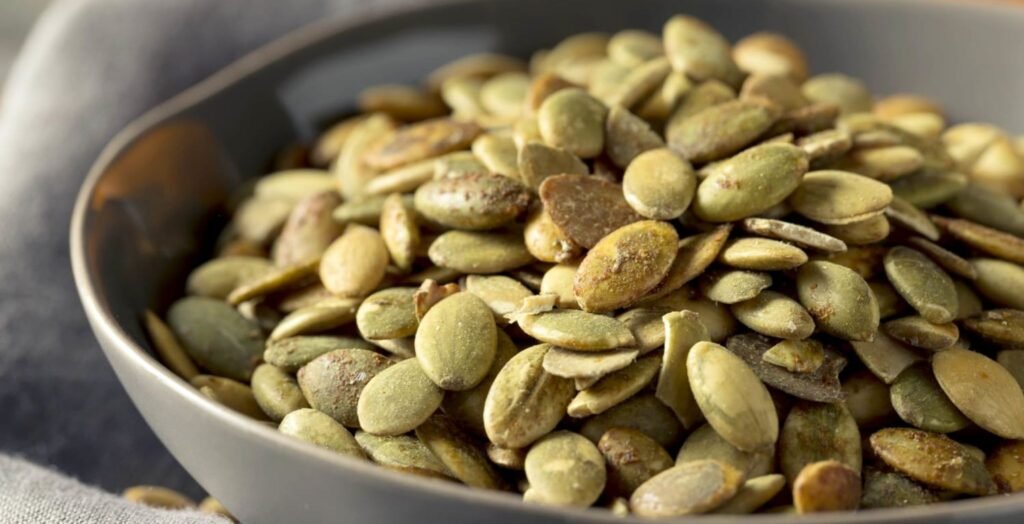Introduction
In the quest for a sharper mind and better overall cognitive function, many people turn to various dietary supplements and “brain foods.”
Among these, pumpkin seeds stand out as a particularly nutritious and beneficial choice.
Also known as pepitas, these seeds are not just a tasty snack but also packed with essential nutrients that can significantly impact your brain health.
In this article, we will explore the nutritional value of pumpkin seeds, their various health benefits, and how you can incorporate them into your diet.
Nutritional Value of Pumpkin Seeds
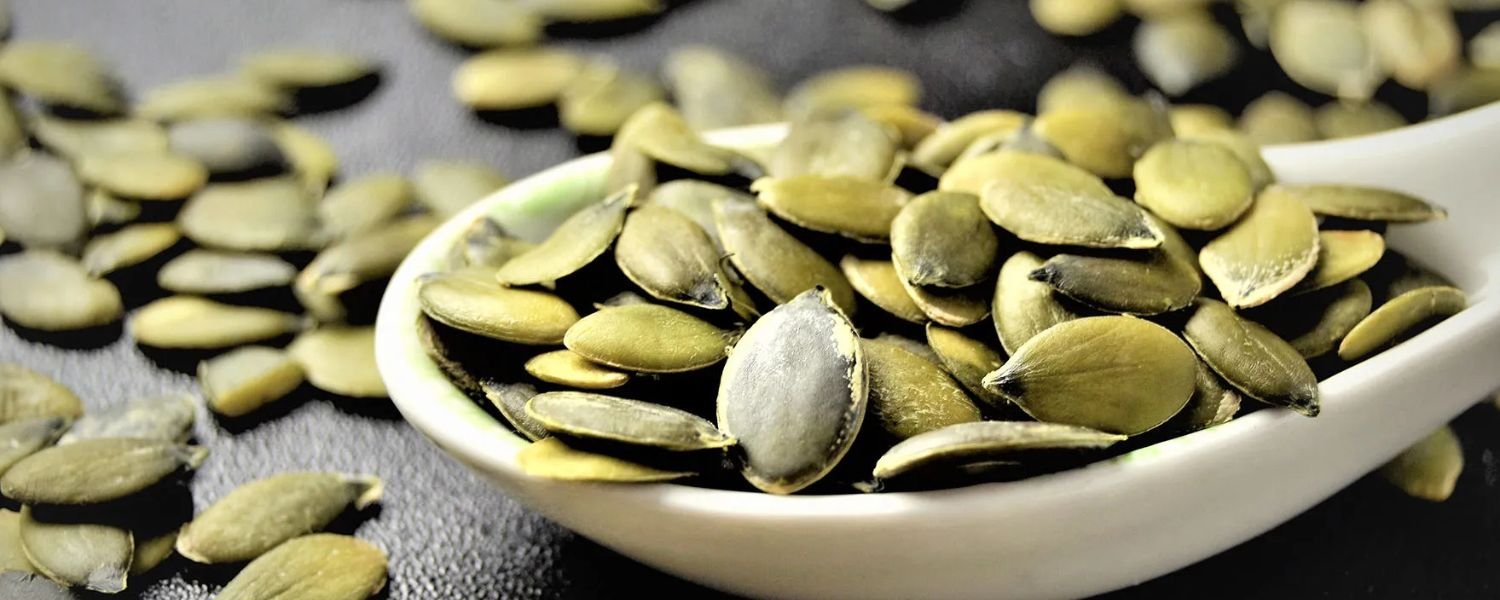
Pumpkin seeds, or pepitas, are tiny powerhouses of nutrients. They are rich in essential vitamins, minerals, and antioxidants.
Here’s a breakdown of what makes these seeds so nutritious:
- Magnesium: Pumpkin seeds are an excellent source of magnesium, which is crucial for maintaining normal nerve and muscle function. Magnesium also supports energy production and helps with brain health.
- Zinc: These seeds are high in zinc, a mineral vital for immune function and cognitive health. Zinc is known to support brain function and may play a role in improving memory.
- Iron: Pumpkin seeds provide a good amount of iron, which is essential for oxygen transport in the blood and overall energy levels.
- Omega-3 and Omega-6 Fatty Acids: These essential fatty acids, found in pumpkin seeds, are crucial for brain health. They support cognitive functions and may help in reducing inflammation.
- Antioxidants: Pumpkin seeds are rich in antioxidants like vitamin E and carotenoids. These compounds help protect the brain from oxidative stress and damage caused by free radicals.
Health Benefits of Pumpkin Seeds
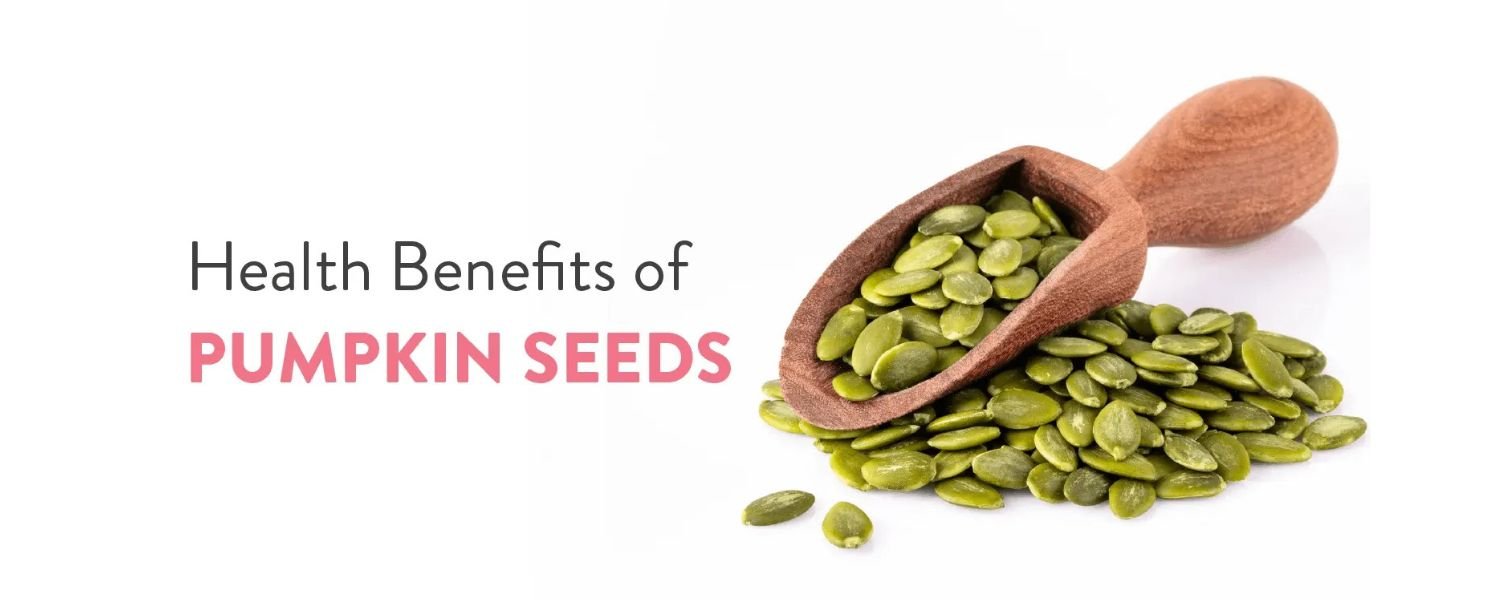
When it comes to brain health, pumpkin seeds offer numerous advantages.
Here are some of the primary benefits:
- Enhanced Cognitive Function: The combination of magnesium, zinc, and omega-3 fatty acids in pumpkin seeds supports cognitive function and mental clarity. Regular consumption can help improve focus and concentration, making them an excellent brain food for studying.
- Improved Memory: Zinc, an important mineral in pumpkin seeds, is known for its role in memory formation and retention. Including pumpkin seeds in your diet can be beneficial if you’re looking to boost your brain food for memory.
- Stress Reduction: Magnesium helps to reduce stress and anxiety levels. By including pumpkin seeds in your diet, you can potentially improve your mood and overall mental well-being, contributing to better brain health.
- Better Sleep: Pumpkin seeds are a natural source of tryptophan, an amino acid that helps in the production of serotonin and melatonin, which are crucial for regulating sleep. A good night’s sleep is essential for optimal brain function.
Other Health Benefits of Pumpkin Seeds
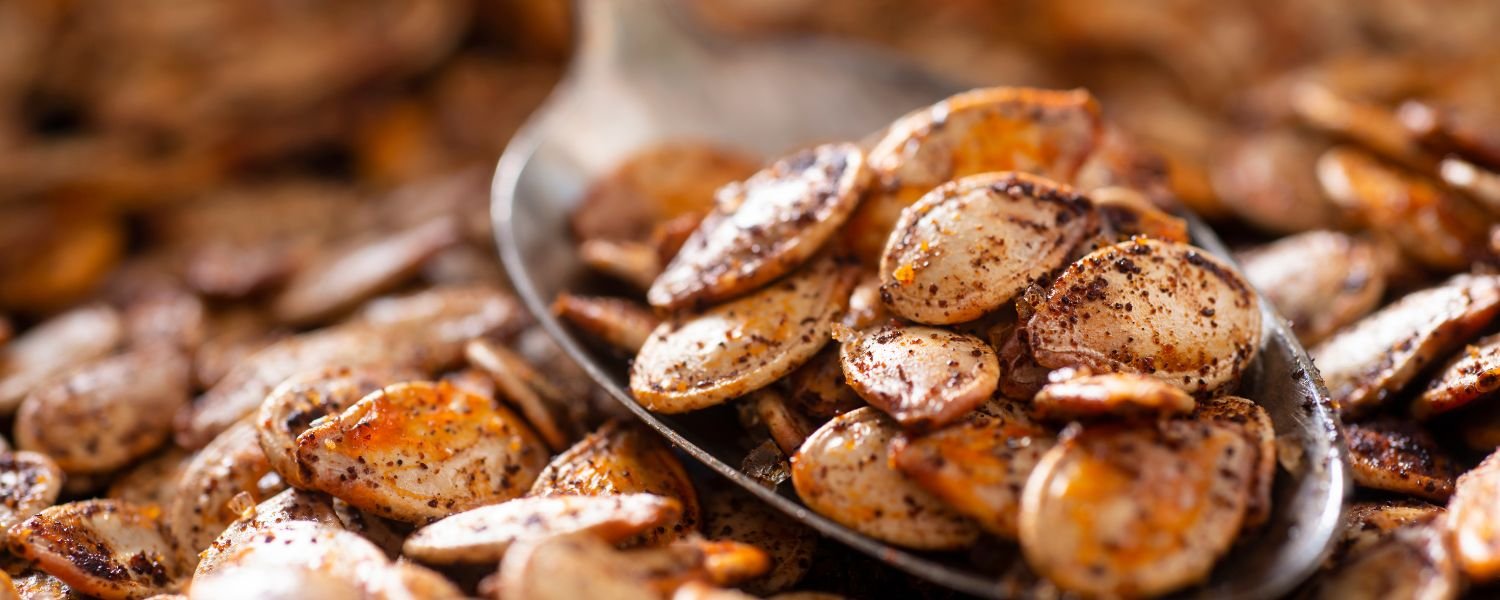
Beyond brain health, pumpkin seeds offer a range of other health benefits:
- Heart Health: The antioxidants and fatty acids in pumpkin seeds help reduce inflammation and lower cholesterol levels, promoting heart health. This makes them one of the best nuts and seeds for brain health and overall cardiovascular health.
- Digestive Health: Pumpkin seeds are high in fiber, which aids in digestion and helps maintain a healthy gut. Fiber is essential for a well-functioning digestive system and can help prevent constipation.
- Prostate Health: Some studies suggest that pumpkin seeds may benefit prostate health due to their high zinc content. They are often recommended as part of a diet to support prostate function.
How to Cook Pumpkin Seeds
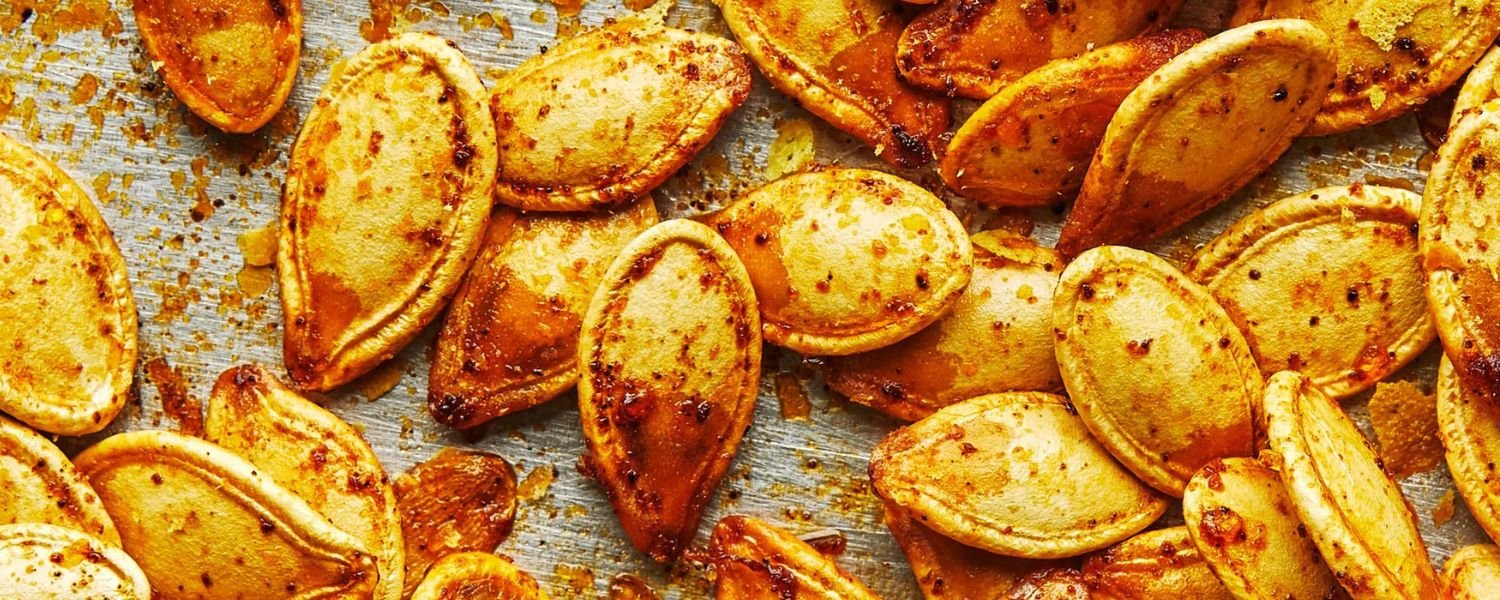
Cooking pumpkin seeds can enhance their flavor and make them a crunchy, enjoyable snack.
Here’s how you can prepare them:
- Cleaning: First, remove the seeds from the pumpkin and rinse them under cold water. You may need to separate them from the pumpkin pulp.
- Drying: Pat the seeds dry with a towel or let them air dry for a few hours. This step is important to ensure they become crispy when roasted.
- Seasoning: Toss the seeds with a bit of olive oil and your favorite seasonings. Options include salt, pepper, garlic powder, or even a bit of paprika for extra flavor.
- Roasting: Spread the seeds on a baking sheet in a single layer. Roast them in the oven at 350°F (175°C) for about 15-20 minutes, stirring occasionally until they are golden brown and crispy.
- Cooling: Allow the seeds to cool before enjoying them. They can be stored in an airtight container for up to a week.
Side Effects of Consuming Pumpkin Seeds
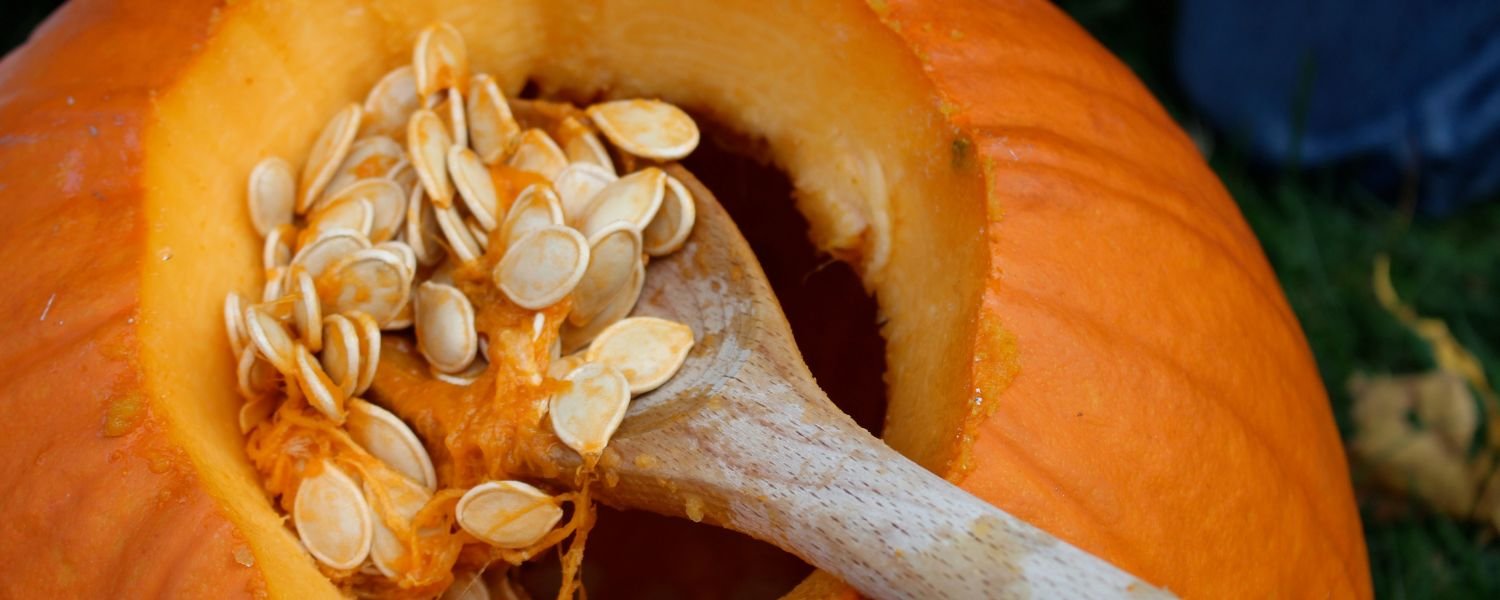
While pumpkin seeds are generally safe and beneficial, consuming them in excess can lead to some side effects:
- Digestive Issues: Overeating pumpkin seeds might lead to digestive discomfort, such as bloating or gas, due to their high fiber content.
- Allergic Reactions: Though rare, some individuals might experience an allergic reaction to pumpkin seeds. Symptoms can include itching, swelling, or gastrointestinal discomfort.
Pepitas vs Pumpkin Seeds
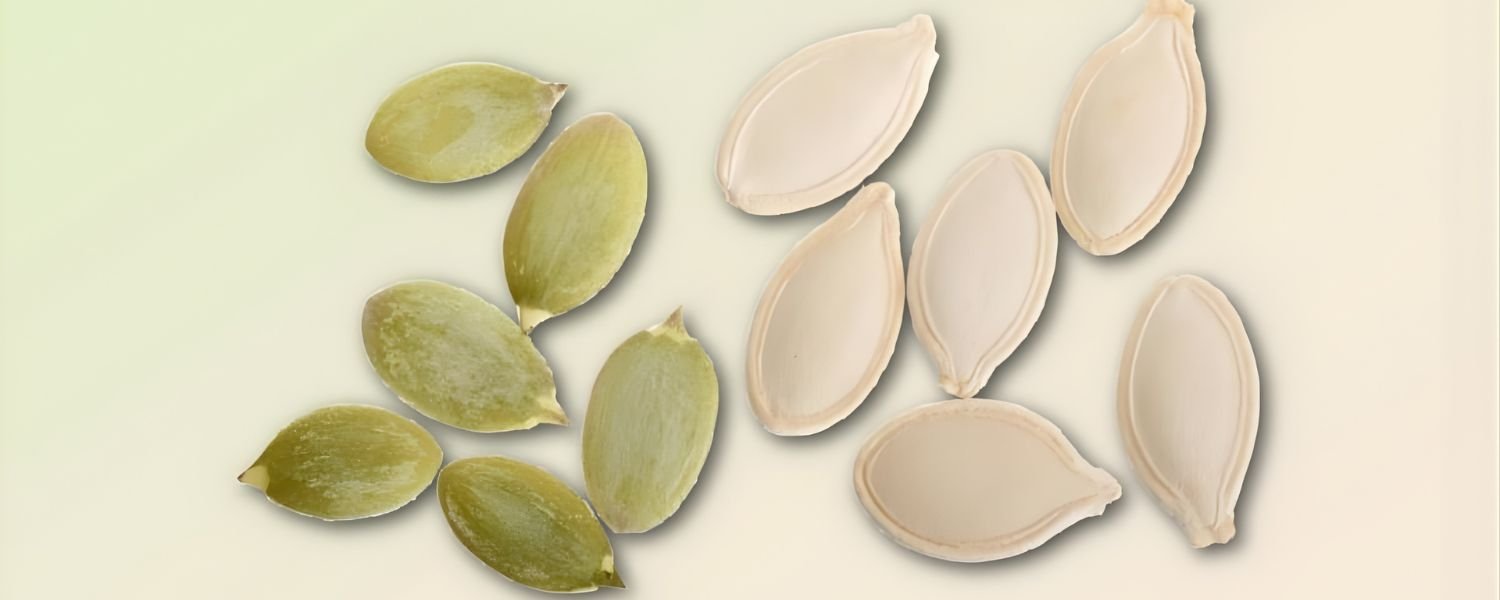
You might have heard the term pepitas and wondered if it’s the same as pumpkin seeds.
The difference lies in the type of pumpkin they come from:
- Pepitas: These are the edible seeds from specific varieties of pumpkins, such as the Styrian or oilseed pumpkin. Pepitas are typically flat and green and are often sold without the outer shell.
- Pumpkin Seeds: This term generally refers to the seeds of the common pumpkin, which can be found with or without the shell. The seeds with shells are often consumed as snacks after being roasted or seasoned.
Can You Experience an Allergic Reaction to Pumpkin Seeds?

Yes, it’s possible to experience an allergic reaction to pumpkin seeds, although it’s relatively uncommon.
Symptoms of an allergy can include:
- Skin reactions: Hives, itching, or eczema.
- Digestive issues: Nausea, vomiting, or diarrhea.
- Respiratory symptoms: Sneezing, nasal congestion, or difficulty breathing.
If you suspect you have an allergy to pumpkin seeds, it’s best to consult with a healthcare professional and avoid consuming them.
How to Consume Pumpkin Seeds
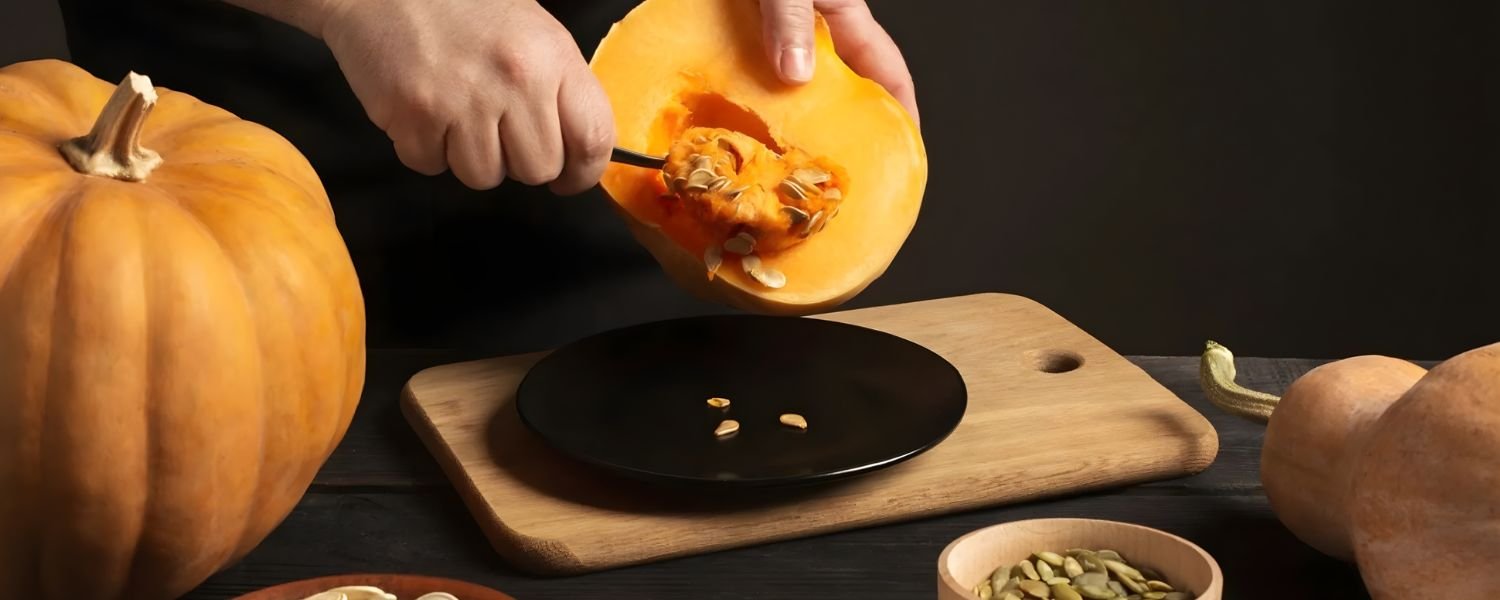
There are many delicious ways to include pumpkin seeds in your diet:
- Raw or Roasted: Enjoy them as a snack on their own or sprinkle them over salads and soups.
- In Baked Goods: Add them to bread, muffins, or granola for a nutritious boost.
- In Smoothies: Blend them into your smoothies for added texture and nutrients.
- As a Topping: Use them as a crunchy topping for yogurt or oatmeal.
Conclusion
Incorporating pumpkin seeds into your diet is a great way to boost your brain health and overall well-being. With their rich nutritional profile, including essential vitamins and minerals, these seeds can enhance cognitive function, improve memory, and support heart health. They are versatile and can be enjoyed in various ways, making them a convenient addition to your daily routine.
Whether you’re looking for brain food for studying, best food for brain recovery, or just a nutritious snack, pumpkin seeds are a fantastic choice. They stand out among brain-boosting foods and are considered some of the best seeds for brain health. By including them in your diet, you’re taking a step toward better brain function and overall health.
For more health related blogs subscribes us!
FAQ
Q1. What are pumpkin seeds?
A. Pumpkin seeds, also known as pepitas, are the edible seeds found inside pumpkins. They are often harvested after the pumpkin is cut open and can be eaten raw, roasted, or added to various dishes.
Q2. What are the main nutritional benefits of pumpkin seeds?
A. Pumpkin seeds are rich in essential nutrients including magnesium, zinc, iron, omega-3 and omega-6 fatty acids, and antioxidants. These nutrients support cognitive function, heart health, digestive health, and overall well-being.
Q3. How do pumpkin seeds benefit brain health?
A. Pumpkin seeds contain nutrients like magnesium, zinc, and omega-3 fatty acids, which are crucial for maintaining cognitive function, improving memory, and reducing stress. They are considered excellent brain food for studying and overall brain health.
Q4. Are there any side effects of consuming pumpkin seeds?
A. While pumpkin seeds are generally safe, consuming them in large quantities may cause digestive discomfort, such as bloating or gas. Additionally, some people may experience allergic reactions, including itching or swelling.
Q5. What is the difference between pepitas and pumpkin seeds?
A. Pepitas are a type of pumpkin seed that comes from specific varieties of pumpkins, such as the Styrian pumpkin, and they are typically sold without the outer shell. Pumpkin seeds can be from various pumpkin types and may be consumed with or without their shells.
